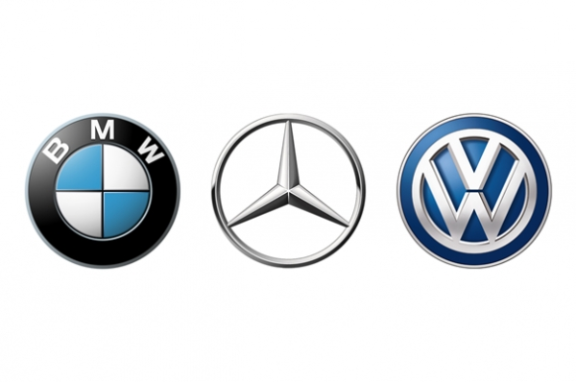3 German Carmakers Dominate Imported Car Market in Korea

The three major German carmakers are continuing to expand their market shares in the Korean imported car market, while other imported brands are being forced to leave the Korean market due to a drop in sales.
In April, the combined market share of the three German companies — Mercedes-Benz, BMW (including Mini and excluding Rolls-Royce) and Audi Volkswagen (excluding Bentley and Lamborghini) — hit 70.5 percent. Their combined share a year ago stood at 57.6 percent. Their cumulative share in the first four months of this year also rose to 65.9 percent from 53.2 percent in 2019.
By brand, Mercedes-Benz suffered a drop in market share in April, but its sales swelled, while BMW posted an increase in sales and market share.
On the other hand, sales volume and market shares of other brands plummeted except Volvo, which quietly increased sales, and Porsche, which enjoyed the effects of new model launches. U.S. brands Ford and Jeep lost 24.2 percent and 38.8 percent in sales in April, respectively, with their Jan.-April sales falling 20.7 percent and 33.7 percent on year. Land Rover, a strong player in the imported sports utility vehicle (SUV) market, also suffered a 45.6 percent drop in sales in April and a 43.5 percent drop in sales during the January-April period. Jaguar sold only 49 units in April, a 54.2 percent drop in sales from the same month of 2019. In the first four months of 2020, it sold 274 units, down 54.1 percent: from 2019.
Japanese carmakers are facing a crisis in the Korean market. Toyota sold 309 units in April, down 62.8 percent from the same period of 2019; Lexus sold only 461 units, down 68.3 percent; Honda 231 units, down 68.6 percent; and Nissan 202 units, down 34.2percent.
Imported car industry insiders analyze that Korean consumers’ boycott of Japanese cars did not remain a simple happening but rather undermined Japanese cars’ brand value. In this situation, a rumor is going around that Japanese brands will even withdraw from the Korean market. Nissan Korea is a good example. The Japanese automaker posted 14.1 billion won in operating loss from April 2018 to March 2019, and its loss amount is expected to surge in the latest fiscal year. Nissan’s head office in Japan also suffered management difficulties and swung to a deficit in the fourth quarter of 2019, the first time in 11 years.